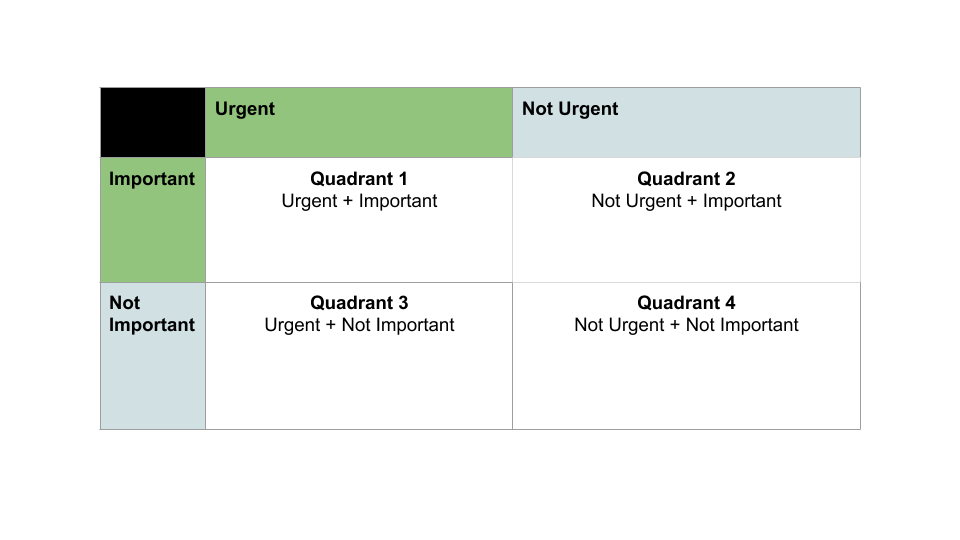
The big theme of this post is learning to be a jerk about your time, through time blocking.
I don’t actually condone being a jerk. Part of the reason I started this blog was to dispel the whole “Nice guys finish last,” cliché.
That said niceness is subjective, and if you read my blog, you probably have the same problem I do: You’re too nice.
I like being liked to a fault.
Why You Being a Jerk is Better for Everyone
I can’t stand to think that I’m letting people down or not meeting their expectations to the point that it either:
- Sends me into a complete state of overwhelm as I try to be everywhere for everyone. Or
- Sends me into hiding. If no one can find me, no one can expect me to do anything.
These are both terrible options. It is much better to be a little bit of a jerk up front, protect your time, and be fully present when you are lending it to someone else. You end up with:
- respect
- sanity and
- stronger relationships.
It’s time for you to be a jerk too. By the end of this post you’ll be serious about time management, and you will be time blocking like a boss.
What Is Stopping You From Time Blocking?
But before we get into that, let’s talk about your feelings (my favorite)!
If you don’t already time block, why?
- Is it because you think other people who are rigid with their time are selfish jerks, real ones?
- Are you worried that “time management” means you will never be spontaneous? That you’ll become a robot?
Those are the two most common worries I hear from clients and friends around time management.
Let’s handle #1 first.
1. Will time blocking automatically make me a jerk?
Do you know someone who makes plans way ahead of time?
“Who schedules a night out 3 months in advance?!” you yell to your other time-challenged friends.
Hint: If you dig deep, I guarantee the answer is not “to annoy me” or “because they are an asshole.”
In situations like these I always reach back to something I learned in journalism classes called the “5 W’s and 1 H.”
When writing an article, you learn to go through the:
- Who
- What
- When
- Where
- Why
- How
If I’m tempted to be critical of someone, I’ll quickly run through these questions. In the case of the obsessive time-manager, we need the “Why.”
Do they have kids, a demanding job, big personal goals, or are simply very organized and left-brained?
Put your journalist hat on, giving your friend a call and asking them both “Why?” and” How?” they handle their calendar.
“But Wendy. Don’t encourage them!” You yell at your computer screen.
Now I’ll ask you “Why shouldn’t I encourage them?”
Is it because they make you feel bad in comparison, walking around with their cute “millennial pink” planner and color-coded Google calendar? The truth is you should put a little work into your time management. And then YOU can be the one walking around with a planner.
I’m betting that once you talk to your friend you’ll want to join their ranks. We should all be selfish jerks about our one most precious commodity! It’s crazy not to.
The difference for you, now that we have this self-awareness, is that I won’t let you get called out for it. You can smile, knowing you’re being a little bit of a selfish jerk, without giving up your nice person reputation.
How to Be a Jerk Without Offending Anyone
Here’s the secret to being incredibly selfish with your time and not being perceived as The Worst: honesty.
Just be honest. Let other people know your “Why” up-front. That way, you can be a “jerk,” but never be perceived as one.
One caveat. If your “Why” is perhaps something like you are ditching your friend repeatedly because you think they are a toxic person, or you’d rather watch Netflix, this probably doesn’t apply. But if you need to switch up your weekly book club to every other week to make time for writing your own book, then I have a feeling your book club will understand.
Moving on.
2. Will time-blocking ruin all spontaneity and make me a time-obsessed robot?
No! It’s the opposite!
If you aren’t planning your work days by the hour, and any big events or trips you have by the quarter (every 3 months = 1 quarter), then you’re missing out. Why?
Chances are you end up doing a lot of scrambling at the last minute.
You might have a lot of near-misses with deadlines. You might never have taken that Hawaii trip you’ve been dreaming about for the last 5 years.
Time-blocking doesn’t make your life rigid.
- It allows you to have focused hours for work and events so that you don’t have to worry about those things when you’re free.
- It lets you be free, when you’re free.
- It allows you to live in the moment without worrying that you’ve forgotten something.
- And it allows you to plan and save for the big things, so you actually do them!
Finally, just having a calendar doesn’t make you a slave to it. You can move things around. It’s your calendar. You should be protective of it. You should be…a jerk about it.
We’ll just keep that last part between us.
How to Time Block
Time Blocking Step One: Use the Quadrant To-Do List
The Quadrant To Do List came on the scene in Steven Covey’s book 7 Habits of Highly Effective People. The idea is to take your to do list and break the items up into four buckets, or quadrants. Each quadrant forces you to think about both the Importance and the Urgency of each item, then prioritize them.
Here is a quadrant to do list diagram I made.

I recommend you work through the quadrants in order:
- Quadrant 1: Urgent + Important
- Quadrant 2: Not Urgent + Important
- Quadrant 3: Urgent + Not Important
- Quadrant 4: Not Urgent + Not Important
WARNING: Quadrant 3 is the one you want to watch out for. These are the things that a lot of people end up spending most of their time on because they are urgent, but low-pressure. They make you feel like you’re being really productive because they are easy and fast. I recommend seeing if there is anything here you can delegate to someone else.
Quadrant 4 is likely full of small things you can ignore, or do in your down time. If something needs to give, you’ll find it here.
How to Make a Quadrant To Do List
I make mine REALLY simple so that within the “quadrants” I can write as much or as little as I want for each task. To build one I just just:
- Open a Google Doc
- Insert > Table> 2×4
- Put the headings at the top and go!
Time Blocking Step Two: Block Time in Your Calendar
Every week, either Friday afternoon, or Monday morning, open up your quadrant to do list and use it to block out your calendar.
Even include time you need for planning, thinking, and basic stuff like daily email checking.
- Front-load the “Urgent and Important” items towards the beginning of the week, and at times when you have the most energy available.
- Sprinkle the other items in where they make sense.
- “Unimportant” items are good candidates for lower-energy times.
Time Block the Small Stuff
I block out even crazy basic things like coffee with a new coworker and “outlining.” This is how I stay sane and how I’m able to go home at night and play with my kids while my phone sits tucked away in a backpack, and all work-related ruminating stays with it!
If it’s not in my calendar, it doesn’t exist.
Repeat after me: If it’s not in my calendar, it doesn’t exist.
If you honor your calendar, then the rest of your times is yours. Doesn’t that feel great?
For one-on-one support managing your time, schedule a free Career Chat.






Leave a Reply